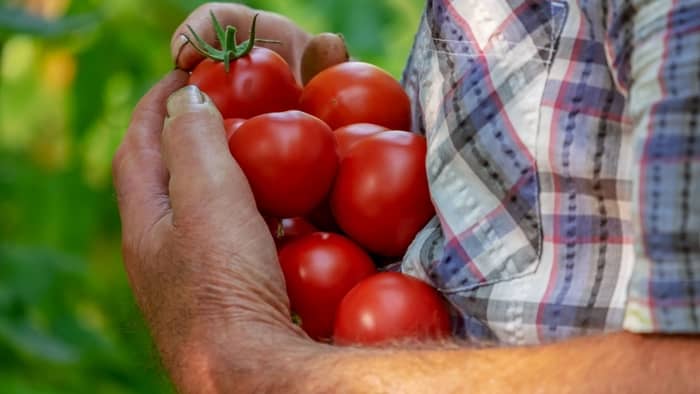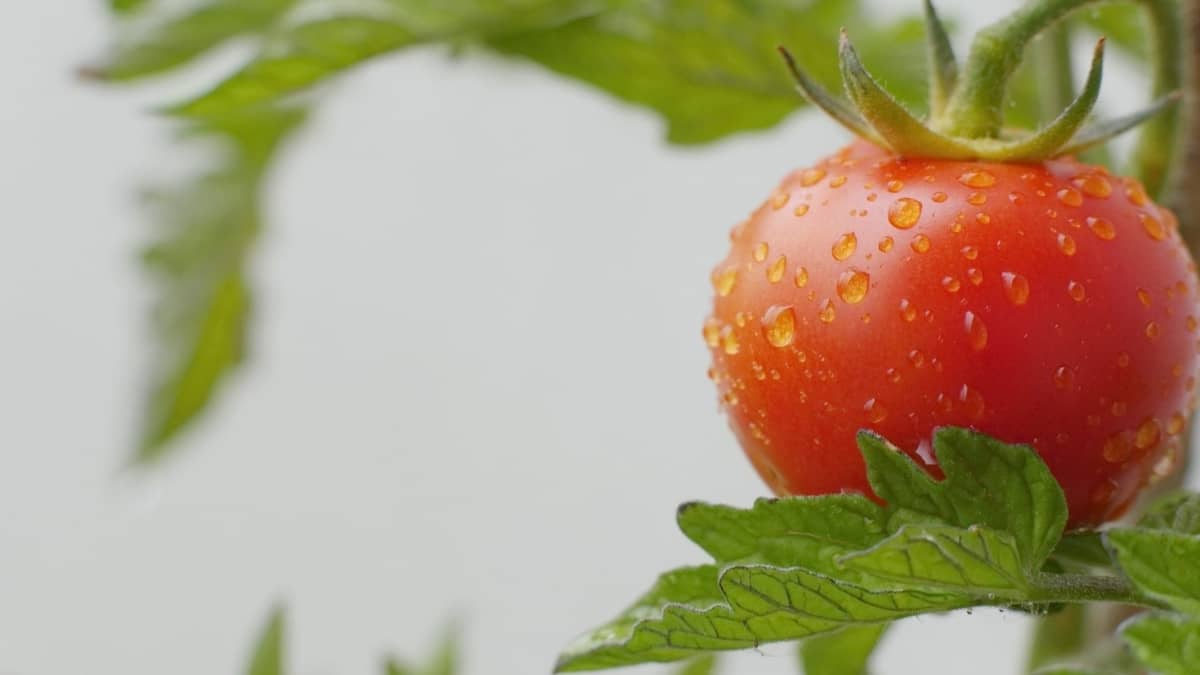Last Updated on September 12, 2022 by Griselda M.
Do you know when tomato plants stop producing or do you just wait until there’s no more fruit, but don’t know at which point to expect that?
Growing tomatoes is every gardener’s dream. There are many varieties of tomato plants to choose from, with sun gold being one of the commonly grown ones. The sun gold tomato is a great tasting, very productive, and disease-resistant variety. Whatever variety works for you, don’t hold back, go for it with all of your efforts.
When you’ve been harvesting tomatoes from your tomato plant, do you know when it will stop producing more? Tomatoes are very forgiving. They will produce for months or even years with minimal attention. It is possible to get a lot of fruit from a single plant in a season but they do require some attention to maintain their productivity.
When Do Tomato Plants Stop Producing?
A single tomato plant can produce fruit for 4-5 years, provided there are sufficient nutrients in the soil. Once nutrients get depleted, or your tomato plants have a disease infestation then they will stop producing. However, the question of when exactly they stop producing depends on the variety of tomatoes being grown.
Generally, tomatoes are grown as annual plants and will typically produce for a single year. But if provided with the right conditions, they can produce for many subsequent seasons. So there is no definite answer to when tomatoes stop producing.
Here are some of the causes of tomatoes ceasing production;
- Environmental conditions. For example, in tropical climates tomatoes are short-lived perennials
- Care it receives, such as the provision of nutrients. If they are not sufficiently provided, the tomato plants stop producing
- Cold and frost may also stop tomato plants from producing
- Bacterial and fungal infestation
- After the first few seasons of production, the tomato yield starts to decline
Because tomatoes are summer crops and emerge during the warmer months of May and June, growth and production will typically cease during the winter months.

GERAMEXI Garden Tools Set 11 Pieces
How To Harvest Tomatoes?
Harvesting tomatoes for the first time can be intimidating. Tomatoes are one of those vegetables that everyone seems to love, but they can also be tricky to pick. They’re small, and they have to be picked when they’re ripe, or else they’ll spoil.
But, harvesting is a great experience. It gives you the chance to connect with your food especially. You’ll learn how to properly look out for ripe tomatoes and how to pick them.
Tomatoes are an excellent crop for kids to harvest. It can be fun to watch your tomatoes grow. Kids can harvest their tomatoes, too, and they’ll learn a lot about where their food comes from.
When harvesting, pick only the tomatoes that have started to turn red. Do not pick any that is all green as it has not started its ripening journey.
This means you can harvest whenever you have the time and the conditions are right. Harvesting tomatoes is best done in late fall or early winter when it’s cold outside. Harvesting tomatoes in hot weather can be tricky. They’ll grow quickly, and they can turn into mush if they’re picked before the time is right.
To harvest, use a sharp knife or scissors to cut the tomato stem next to the tomato fruit. Do not just pull it from the plant as you can damage the whole plant. Once you have harvested the entire tomato plant, you can use it to make compost.
Important Considerations When Growing Tomatoes
Remember that the time when tomatoes stop producing is dependent on the type and variety of tomatoes being grown. Make sure that you do a bit of research into the ones you are growing so that you know what exactly to expect and avoid disappointments.
Knowing the nutritional quality of your soil is also very important. So if you can get your soil tested or purchase probes that you can use to measure the important parameters of your soil, it can help you immensely in adjusting your tomato production expectation.
Keeping your tomato plants disease free is another important consideration and will be a great determinant in the continuation of your tomato production throughout the seasons. Do the research and watch out for common diseases that affect tomatoes, such as blight, black mold and other fungal pathogens. The earlier you catch these, the better your chances of saving your plants and getting the best productivity out of them. Once you’ve diagnosed a problem, ask for treatment options from your local garden store to tackle it before it becomes too much of an issue.
Also find a way to keep creatures such as birds from feasting on your ripened tomatoes by covering them until you are able to harvest.
In Summary – When Do Tomato Plants Stop Producing?
To answer the question of when do tomato plants stop producing fruits, it’s best to read the above article and learn a few things about tomato production and harvesting. Once you do, your tomato growing journey will be better than it has been in the past seasons. All the best in your tomato gardening journey!
Frequently Asked Questions
Do tomatoes stop producing?
Tomatoes stop producing once their growing season is over. The tomato plant produces tomatoes for a period of about 2 to 3 months and after that, the harvest is over.
What to do with tomato plants when they stop producing?
When a tomato plant stops producing, it is best to remove the dead plant from your garden. Do not throw them away. You can compost them or bury them to use in your garden next year. If you have a greenhouse, keep them in there for a while to give them time to decompose.
How long will tomato plants produce?
Tomato plants usually stop producing after two or three months of maturity. This means that once the summer is over, the tomatoes will start to ripen. When they are fully ripe, they will be ready to eat. As the winter sets, the tomato season ends.
How do you encourage tomatoes to be fruit?
By watering them regularly and fertilizing them you encourage them to produce more fruits.
Caroline is a gardener who loves to get down to the nitty–gritty of gardening. She proudly proclaims herself as a ‘dirt worshipper‘ and can often be found deep in the garden, covered in soil and singing to her plants. As a self–proclaimed ‘plant whisperer‘, Caroline believes that plants need love and attention just like any other living thing, and she loves to give them both. When she‘s not tending to her garden, you can often find her researching the latest gardening trends, or teaching others how to make their gardens thrive



